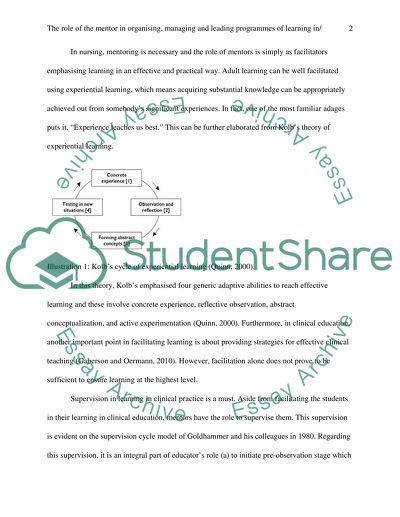Cite this document
(“The Role of the Mentor In Organising, Managing And Leading Programmes Essay”, n.d.)
Retrieved from https://studentshare.org/nursing/1396268-the-role-of-the-mentor-in-organising-managing-and-leading-programmes-of-learning-in-clinical-education
Retrieved from https://studentshare.org/nursing/1396268-the-role-of-the-mentor-in-organising-managing-and-leading-programmes-of-learning-in-clinical-education
(The Role of the Mentor In Organising, Managing And Leading Programmes Essay)
https://studentshare.org/nursing/1396268-the-role-of-the-mentor-in-organising-managing-and-leading-programmes-of-learning-in-clinical-education.
https://studentshare.org/nursing/1396268-the-role-of-the-mentor-in-organising-managing-and-leading-programmes-of-learning-in-clinical-education.
“The Role of the Mentor In Organising, Managing And Leading Programmes Essay”, n.d. https://studentshare.org/nursing/1396268-the-role-of-the-mentor-in-organising-managing-and-leading-programmes-of-learning-in-clinical-education.


